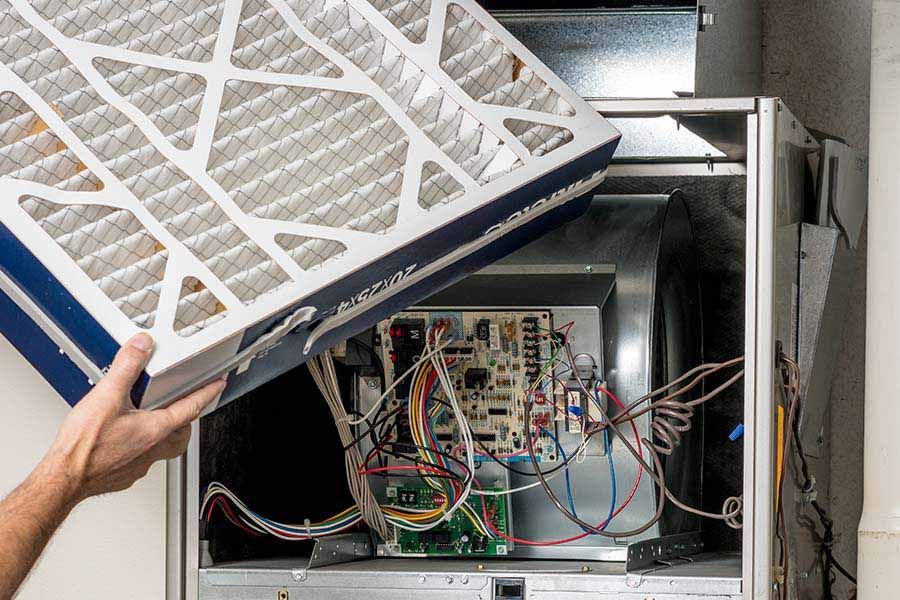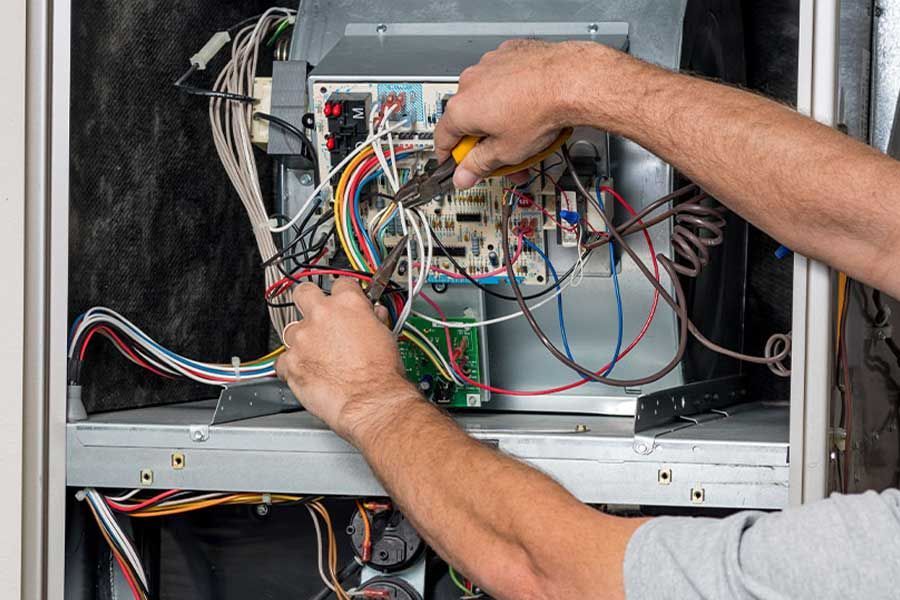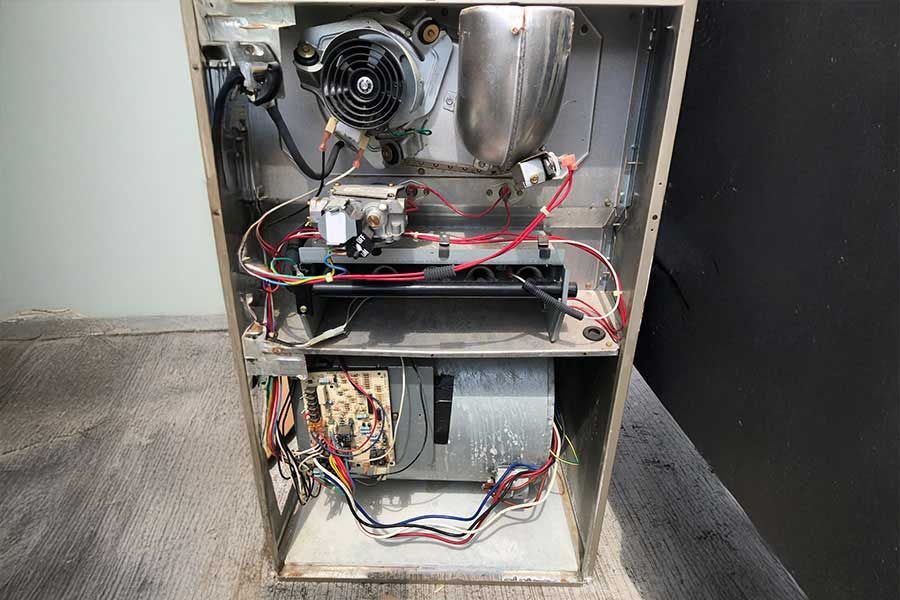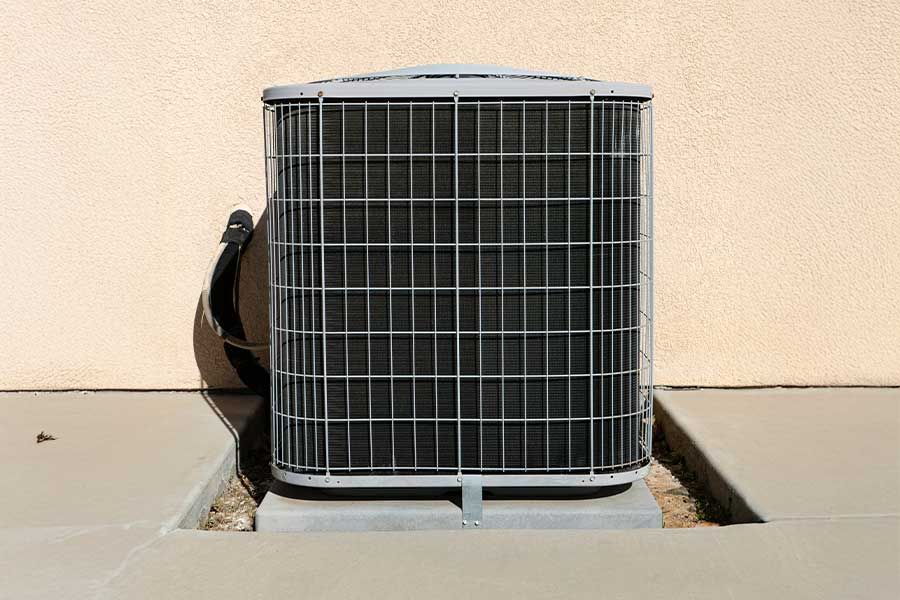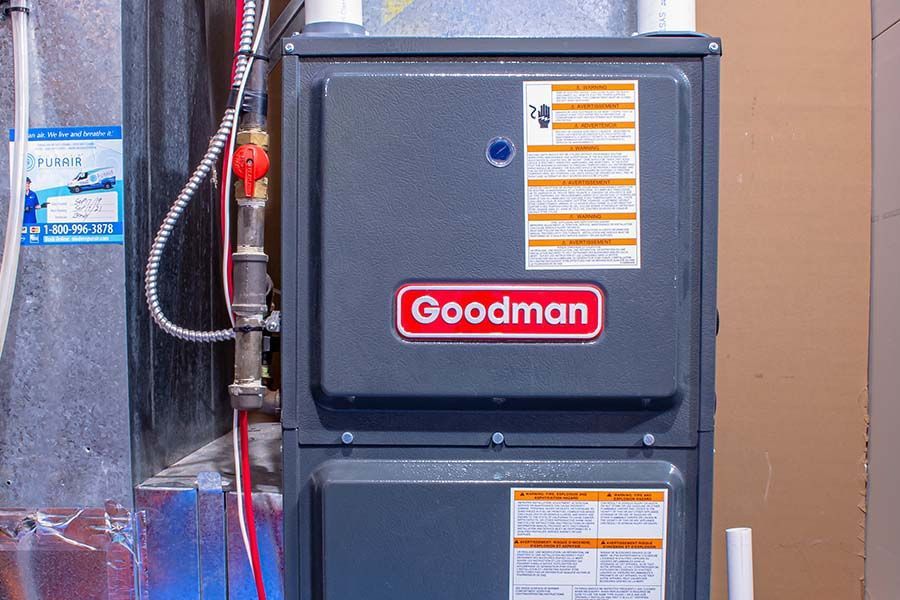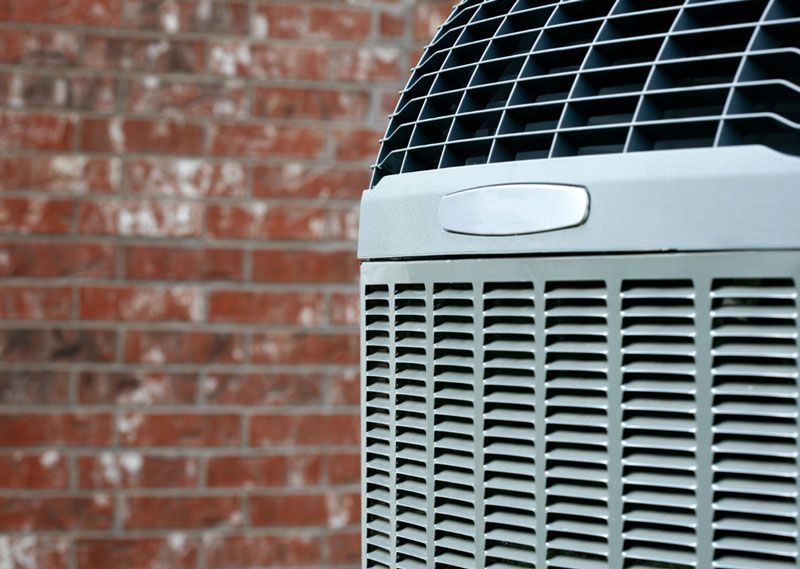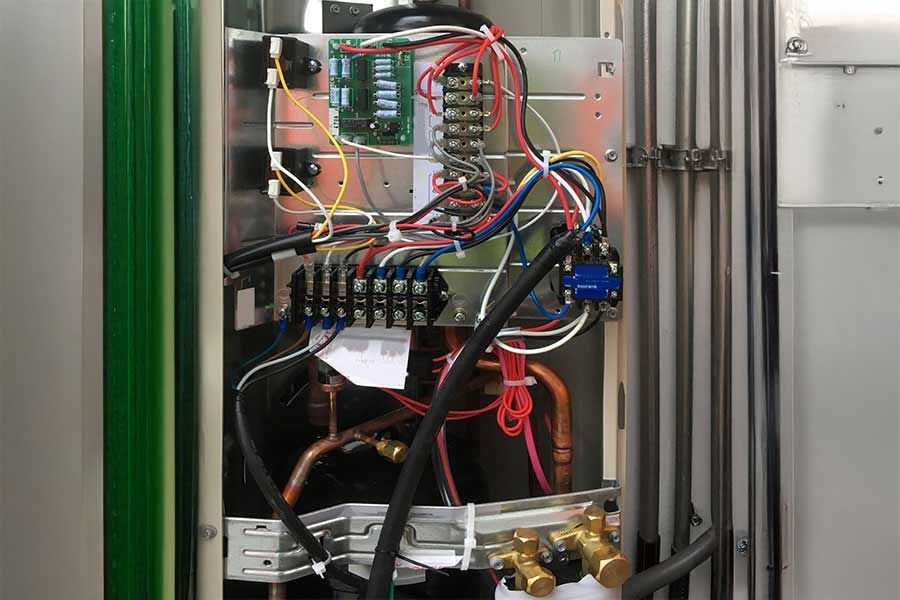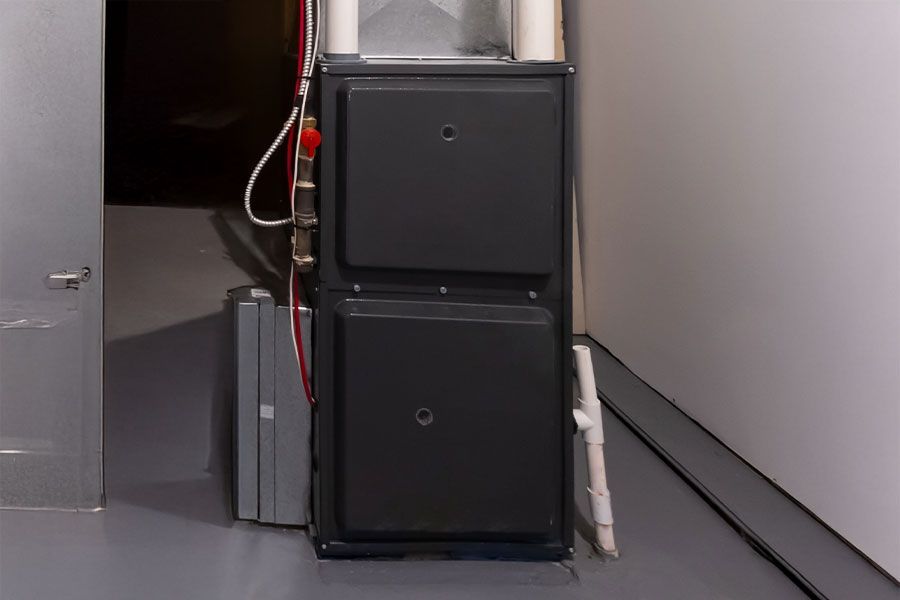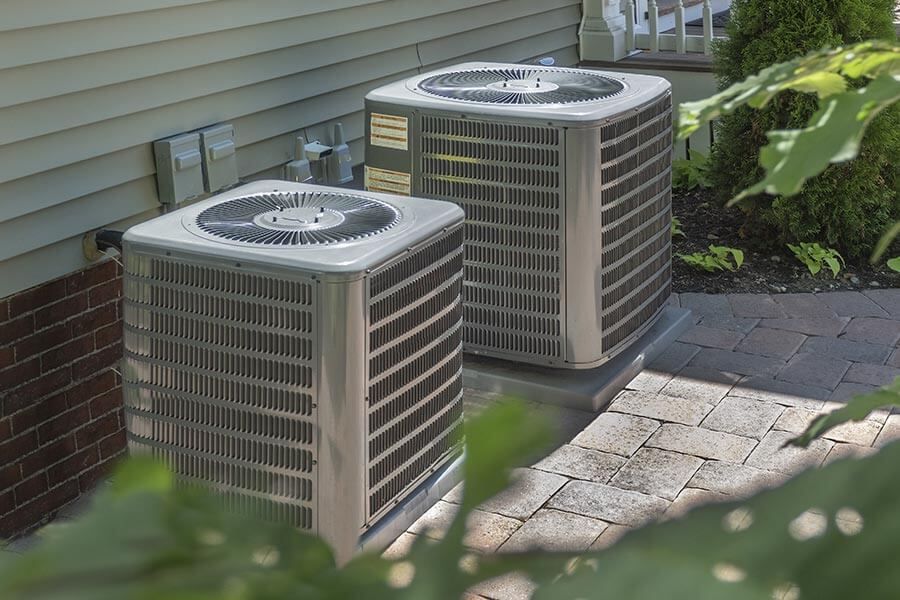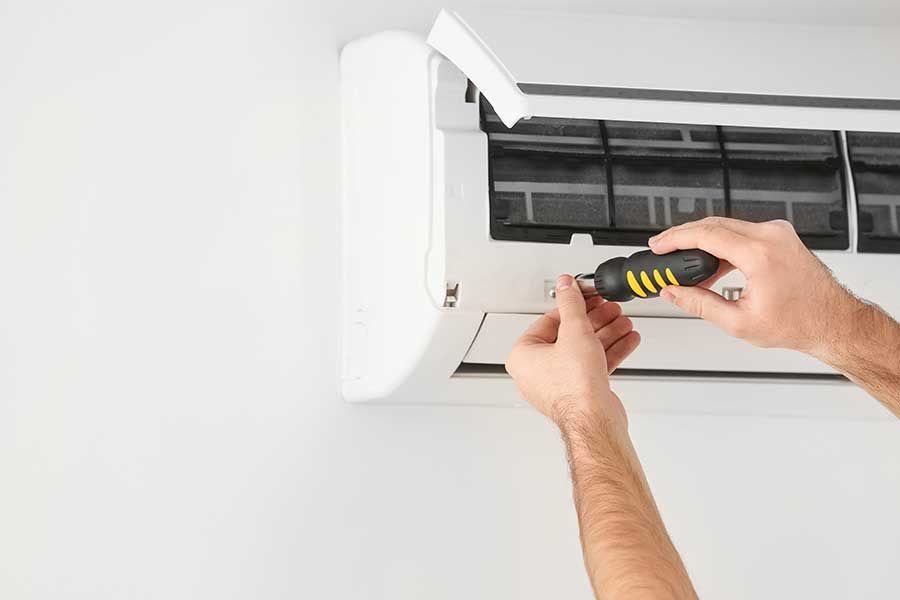7 Warning Signs Your AC Needs a Professional Tune-Up
When your air conditioner isn’t running like it used to, it’s crucial to spot the signs that it might need a professional check-up. Are you experiencing weak airflow, or is your unit making strange noises like rattling or banging? Maybe you’ve picked up on unpleasant smells, frequent cycles turning on and off, or even higher humidity levels in your home. Rising energy bills and water leaks around the unit are also warning signs that shouldn’t be ignored. Each problem indicates underlying issues that could worsen if left unaddressed. So, what exactly should you be looking for?
Weak Airflow
If you notice weak airflow from your AC vents, it might be time for a tune-up. One common cause is damaged ducts. Over time, ducts can develop cracks or holes, allowing air to escape before reaching your living space. This reduces airflow and makes your system work harder, increasing energy costs.
Another issue to consider is blocked vents. Furniture, curtains, or even a buildup of dust can obstruct vents and restrict airflow. Make sure nothing is blocking them to keep air moving efficiently.
Dirty filters are another frequent culprit. Filters trap dust, pollen, and other airborne particles, but they get clogged if not replaced regularly. A clogged filter limits the air that can pass through, diminishing airflow and making your AC less effective.
Fan issues can also lead to weak airflow. If the fan motor is malfunctioning or the fan blades are dirty or damaged, the system won’t circulate air properly.
Lastly, low refrigerant levels can compromise your AC’s cooling ability. When refrigerant is low, the system struggles to cool the air, affecting overall airflow. Checking and maintaining proper refrigerant levels ensures your AC runs efficiently.
Unusual Noises
Strange sounds from your AC unit can be an early warning sign that it needs a tune-up. There might be loose parts inside the unit if you hear rattling, clanking, or banging noises. If ignored, these loose components can cause significant damage. Another common issue is fan problems. A faulty fan can produce grinding or squealing sounds, indicating that it’s vital to operate correctly.
Motor problems are another culprit behind unusual noises. When the motor is malfunctioning, you might hear humming or buzzing sounds, which can signal that the motor’s on the verge of failing. It’s crucial to address motor issues promptly to prevent a complete breakdown.
Debris buildup inside the AC unit can also contribute to strange sounds. When debris accumulates, it can obstruct the fan or other moving parts, causing them to make unusual noises. Regular cleaning and maintenance can help prevent this problem.
Additionally, bearing failure is a serious issue that often manifests through loud, persistent noises. Bearings are important for the smooth operation of the motor and fan. If you hear high-pitched squeals or grinding, it could indicate bearing failure, requiring immediate professional attention.
Ignoring these sounds can lead to more severe damage and costly repairs, so don’t hesitate to call a professional for a tune-up.
Foul Odors
While unusual noises can alert you to mechanical issues, foul odors from your AC unit are another clear sign that it needs immediate attention. If you notice a musty smell, it could indicate mold growth inside the unit. Mold thrives in damp environments and can spread through clogged filters, affecting the air quality in your home.
A sour or pungent odor may point to bacterial buildup in the system. Bacteria can accumulate on dirty coils and other components, creating unpleasant smells. Regular cleaning and professional maintenance can help prevent this issue.
Sometimes, a burning smell could mean that the electrical components are overheating or that there’s dust burning off the coils. Either way, it’s a sign that you should immediately call a professional.
Another possible cause of foul odors is pest infestation. Small animals or insects can get trapped inside the unit, leading to decay and a strong, unpleasant smell.
To keep your home smelling fresh and your AC unit running efficiently, schedule a professional tune-up at the earliest signs of foul odors. Ignoring these smells can lead to more severe problems and costly repairs down the line.
Frequent Cycles
Experiencing frequent cycles in your AC unit is a warning sign that something might be wrong with its efficiency or functionality. When your AC keeps turning on and off rapidly, it’s often called short cycling. This isn’t just annoying; it can lead to higher energy bills and unnecessary wear and tear on your system.
Several issues could cause short cycling. One common culprit is thermostat issues. If your thermostat isn’t correctly calibrated or is malfunctioning, it might signal the AC to shut down prematurely. Another possibility is internal blockage within your system. A clogged air filter or obstructed vents can restrict airflow, causing the unit to cycle more frequently as it struggles to maintain the set temperature.
Low refrigerant levels can also lead to frequent cycles. When refrigerant is insufficient, the AC can’t effectively cool your home, prompting it to turn on and off more often. Finally, sensor problems can disrupt the normal operation of your AC. If the sensors that monitor temperature and humidity are faulty, they might cause the unit to cycle erratically.
Addressing these issues promptly with a professional tune-up can restore your AC’s efficiency and prevent further damage.
High Humidity
High humidity in your home can signal that your AC unit isn’t performing at its best. When your air conditioner struggles, it often leads to excess moisture in the air. This not only makes your living space uncomfortable but can also create condensation buildup on windows and walls. Over time, this moisture can lead to mold growth, which poses health risks.
One common cause of high humidity is thermostat issues. If your thermostat isn’t accurately reading the temperature, your AC might not run long enough to eliminate humidity effectively. Another potential culprit is low refrigerant levels. When refrigerant is low, the system can’t cool the air efficiently, leaving more humidity behind.
Ductwork problems can also contribute to high humidity. Leaks or poor insulation in your ducts allow humid air to enter your home, undermining your AC’s efforts to keep you comfortable.
Addressing these issues often requires a professional tune-up. An expert can check your refrigerant levels, inspect your ductwork for leaks, and ensure your thermostat is functioning correctly. Addressing these problems will improve your AC’s performance and allow you to enjoy a more comfortable, healthier living environment.
Rising Energy Bills
Rising energy bills can indicate that your AC unit needs a tune-up. When your energy costs start climbing unexpectedly, it’s often due to your air conditioning system not operating efficiently. One common culprit is dirty filters, which force the system to work harder and consume more energy. If you’ve been neglecting regular maintenance, these filters can become clogged, reducing airflow and making your AC unit strain to cool your home.
Clogged ducts are another issue that can spike your energy bills. When ducts are blocked, the air can’t circulate properly, causing the system to overcompensate. This increases energy consumption and puts unnecessary stress on your AC unit. Thermostat issues can also play a role. A malfunctioning thermostat may lead to your system running longer than necessary, driving up energy usage.
Refrigerant levels are important, too. Low refrigerant can make your AC run inefficiently, causing it to stay on longer to achieve the desired temperature. This inefficiency translates directly into higher energy bills. Regular professional tune-ups can address these issues, ensuring your system runs smoothly and efficiently. Don’t let maintenance neglect drain your wallet; a timely tune-up can save money and keep your home cool.
Water Leaks
One sign your AC unit needs a tune-up is water leaks around the system. If you notice puddles or damp spots near your AC, it indicates something’s wrong. A common culprit is a clogged condensate drain line. When this gets blocked, condensation buildup can’t drain properly, leading to leaks. Over time, this can cause significant water damage to your home.
Refrigerant leaks are another issue to watch out for. While they typically lead to cooling problems, they can additionally result in excess moisture around the unit. Low refrigerant levels cause the evaporator coil to freeze, and when it melts, you’re left with water pooling around the system.
Ignoring these signs can lead to more severe problems. A clogged condensate line, for instance, can cause the water to back up and overflow, damaging floors, walls, and even the AC unit itself. Regular maintenance can prevent these issues by ensuring the drain line is clear, and adequate refrigerant levels.
Don’t wait until you have significant water damage to address these problems. Schedule a professional tune-up to keep your AC running smoothly and your home dry.
Conclusion
To sum up, don’t overlook your AC’s cries for help. According to the U.S. Department of Energy, addressing issues early can help you save up to 15% on your energy bills. Whether it’s weak airflow, strange noises, or foul odors, scheduling professional tune-ups guarantees that your AC runs smoothly and efficiently. Stay proactive and maintain your AC to enjoy a comfortable, worry-free home environment. Remember, a little maintenance goes a long way!
Frequently Asked Questions
How Often Should I Schedule a Professional AC Tune-Up?
Seasonally, you should schedule professional AC tune-ups to meet warranty requirements, maintain energy efficiency, and follow manufacturer recommendations. Service intervals are typically every six months, ensuring your unit performs at its best year-round.
Can a Dirty Air Filter Affect My AC’s Performance?
Coincidentally, you’re wondering about that. Yes, a dirty air filter can drastically reduce your AC’s energy efficiency, cause airflow issues, lower cooling capacity, and harm indoor air quality. Regular filter replacement is crucial for peak performance.
What Are the Benefits of Regular AC Maintenance?
Regular AC maintenance enhances energy efficiency, extends your system’s lifespan, improves airflow, and guarantees peak performance. You’ll enjoy cost savings on repairs and energy bills while keeping your home comfortable year-round. Don’t skip it!
How Long Does a Typical AC Tune-Up Take?
When you get a typical AC tune-up, expect a technician to work their magic in about an hour. Qualified pros will inspect, tune-up, and provide a cost breakdown, recommending tune-up frequency based on your system’s needs.
Are There Preventive Measures to Avoid AC Problems?
Yes, you can implement preventive measures to avoid AC problems. To keep your AC running efficiently, guarantee proper insulation, adjust thermostat settings, maintain outdoor clearance, schedule regular duct cleaning, and check for vent obstructions.

